
Spring Festival Gala: Chinese People’s Cultural Reunion Dinner
Chinese Spring Festival Gala is the only TV show in the world that can garner 700 million viewers. The live broadcast, which lasts four and a half hours, includes dances, cross talk, magic shows, skits and other art performances. The number of the working staff exceeds 1,000.
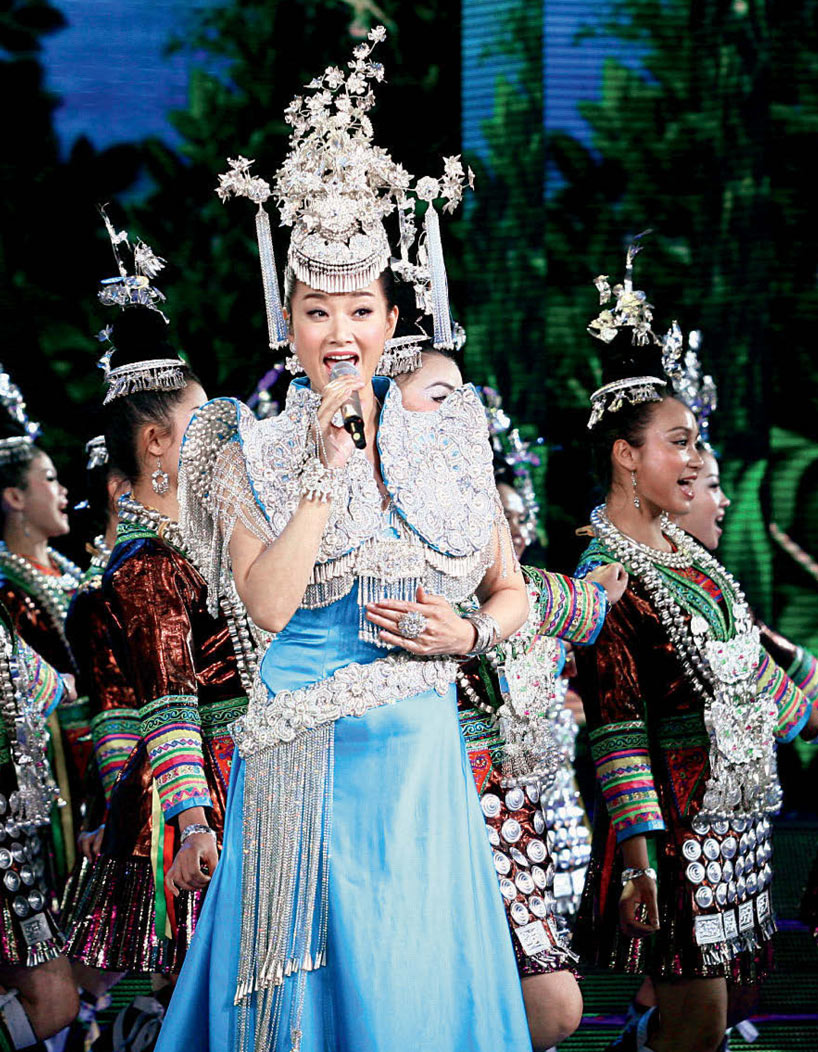
“My name is Ruth, from the Confucius Institute at Kenya’s Nairobi University. My name is Li Tianyi, from the Confucius Institute at Hungary’s Eotvos Lorand University… We are going to celebrate the New Year with you. All the people in the world are brothers, so let’s wish China a happy New Year!” During the gala, when the Confucius Institute students appeared on stage in red traditional Chinese red costumes and sang in Chinese, the audience applauded loudly.
The Chinese volunteer teachers of the Confucius Institute at the University of YaoundeⅡ and local Chinese residents who were celebrating the festival in Cameroon were just as excited. Gao Hang, a Chinese volunteer teacher who has worked at the Institute for four months, said excitedly: “It is the first time that I have ever spent Spring Festival in a foreign country. Without the company of my family, I still feel happy because I can eat the New Year’s Eve dinner while watching the gala. Especially when I saw the show of ‘All the people in the world are brothers’ I felt so proud.”
At this moment, wherever they are, every Chinese is indulged in the festive atmosphere of the lunar New Year. Though the Chinese are busy with their own business every day of the year, on New Year’s Eve they are almost all busy with the same three things: eating New Year’s Eve dinner, setting off firecrackers and watch the CCTV Spring Festival Gala. The show entertains people during the last four a half hour of the year till the clock strikes 12 midnight, when colorful lanterns and festoons are hung up and brilliant fireworks are set off across the nation.
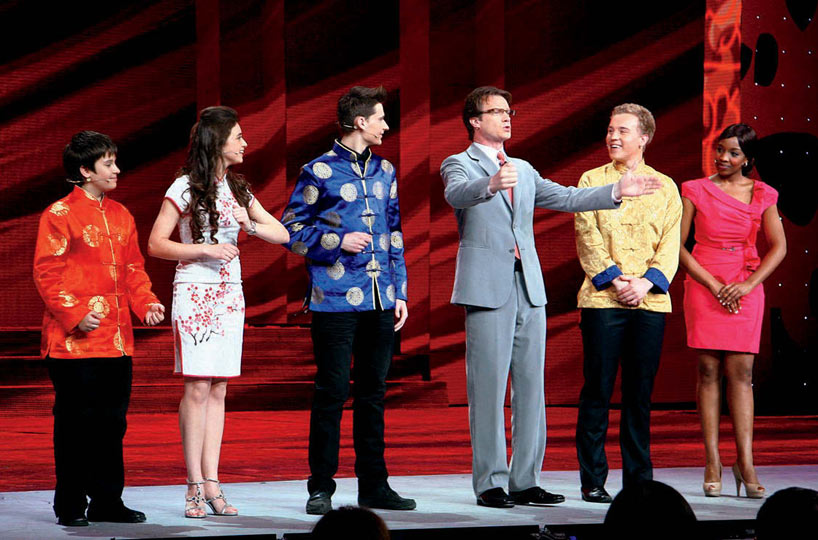
The World’s Top One Gala
The Spring Festival Gala is a TV legend. In the past 33 years since the first one in 1983, the show has matured. It has entertained Chinese people one New Year’s Eve after another. According to a New York Times report, 106.5 million people watched the 2010 Super Bowl, topping the audience rating record in the United States. But the number was overtaken by the CCTV Gala by a large margin: no other TV show in the world can garner 700 million viewers like the Chinese Spring Festival Gala. The live broadcast, which lasts four and a half hours, includes dances, cross talk, magic shows, skits and other art performances. The number of the working staff exceeds 1,000. The show maintains a high audience rating. No other TV program can match it.
It is a gala, and yet it is not just a gala. Against the backdrop of the strong Chinese concept of “reunion,” the show, with its extensive coverage, attracts over 100 million families. In fact, the custom of reuniting and staying up all night on the New Year’s Eve has a long history in China. For this day, people put aside their work and return home from wherever they are. This day, “getting together” is the strongest urge of the Chinese people. The whole family stays up waiting for the clock to strike 12 to say farewell to the passing year and make wishes for the coming year. The reason the gala is becomes increasingly popular is that it complies with and enhances the value of tradition in people’s mind. Family members sit around the television, sharing happiness and waiting for the coming of spring.
“The sound of firecrackers sees off the past year; all houses replace the magic figures carved on peach wood with new ones.” Today, with the company of the Spring Festival show, 1.4 billion Chinese nationals and overseas Chinese “stay up” together on New Year’s Eve. It has become the grandest ritual of welcoming spring in the information age. The famous folklore scholar, Feng Jicai, called the Spring Festival Gala a “new custom of Chinese people,” considering it as a New Year’s Eve cultural gala.
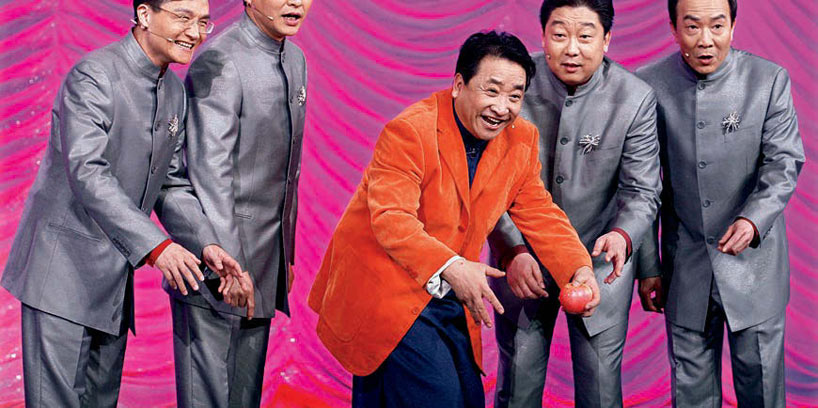
A Gala Creating Stars
“You are like fire, raging flames burn me up.” In 1987, singer Kris Philips’ song “Fire in Winter” at the Spring Festival Gala set fire across China overnight. People, whether children or senior citizens, all sang the song, especially young men, who not only sang the song but also imitated the dance movement. In 1998’s Spring Festival Gala, singers Faye Wang and Na Ying sang “Appointment in 1998,” which remained a hit song for the next ten years.
The Spring Festival Gala is like an experienced director who can produce one hit song after another. In the first Spring Festival Gala in 1983, Li Guyi debuted as the first singer. Her song “In Love of Countryside” impressed the audience. Then came Zhu Mingying, with her popular song “A Married Girl Returns to Her Mother’s Home.” The “classics,” which the Spring Festival Galas created, led the year’s fashion and fascinated the audience so much that some of the songs are still sung to this day.
The gala has almost become the “Olympics” of China’s literary and art circles. Even well-known stars regard it a success or recognition to give a performance on the gala. Along with the performers, the lines of cross talks and skits can also become popular, even among overseas Chinese. Some of them also take pleasure in imitating the lines of skits when they return to work after the Spring Festival.
“Silly look!” This was a line in the skit “Blind Date,” performed by Zhao Benshan in 1990. It is now well-known that someone is romantically interested in you if he or she calls you “Silly look.” It is this skit that earns Mr. Zhao the title of “Skit King.” In the following Spring Festival TV shows, he unquestionably became a “landmark.” In Charlie Chaplin’s movies, the audience may burst into laughter every 10 minutes. But in Mr. Zhao’s skits, usually 12 to 18 minutes long, the audience may laugh five times in a minute. On the New Year’s Eve, the Chinese people’s emotion heats up to 99 degrees Celsius. When the curtain is raised, their emotions should reach the boiling point at 100 degrees. If the gala fails to achieve this, it would be considered a failure.
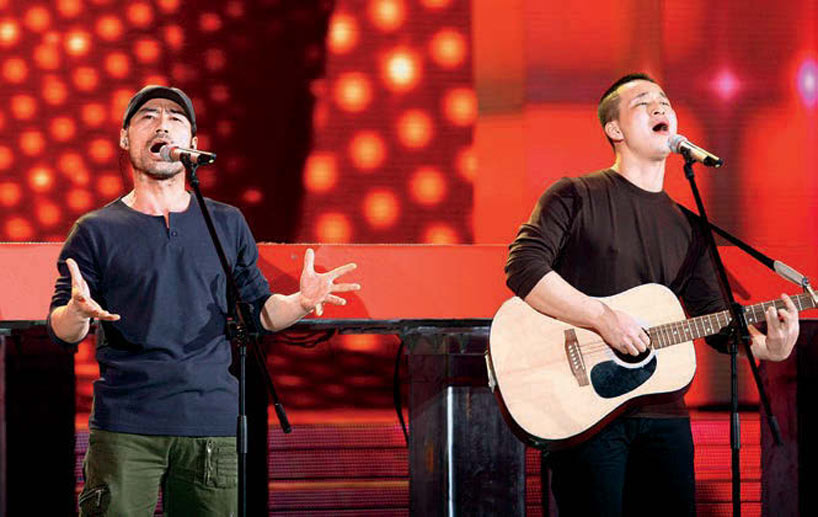
You Gala, My Gala
Inviting grass-root performers was the highlight of this year’s Spring Festival show.
Before the gala was broadcast, Wang Xu and Liu Gang were just ordinary migrant workers in Beijing. They became known on the Internet because of their songs. The duo, both song lovers, set up a band called “Xuri Yanggang.” In a rented room, less than 10 square meters, they played guitar and sang a rock song “In Spring.” They recorded the song and put the video clip on the Internet. To people’s surprise, the duo appeared on the stage of this year’s Spring Festival Gala, with the song “In Spring.” The audience was moved when the two young men, slightly nervous, sang: “If one day I am old and have nothing, please bury me in this spring.” Likewise, a group of migrant workers from Shenzhen performed the song “We Workers Have Power” in the form of hip-hop. Ren Yueli, also known as “Xidan Girl” because she used to sing in the Beijing Xidan subway station, was also invited to the show with a song “Homesick.” This year’s Spring Festival Gala was therefore injected with fresh elements and these performers are called “grass-root stars.”
Actually, a CCTV talent show, “I Want to Perform in the Spring Festival Show,” began searching for versatile people last year. The most-voted-for candidates got the chance to show their talent at the Spring Festival Gala. Getting on the stage of the Spring Festival Gala used to be a dream of many stars. But now this magnificent stage is not exclusively theirs. It tells the people: “Have a dream and let it fly! Today’s stage belongs to them but maybe tomorrow’s belongs to you!”
Besides inviting ordinary people to perform on the show, the live broadcast venue also sets up many interactions between performers and audiences. You can send SMS or cast your vote on the Internet to choose your favorite performance. In the eyes of the directors, the gala is a delightful chronicle. In this age, it doesn’t work if I sing and only you listen — everyone should be entertained.
Difficult to Cater to All Tastes
The Spring Festival Gala is held every year. It has turned from a mere gala to a widely talked about social topic. The preparation usually takes more than half a year. The directors, while wearing short-sleeve T-shirts, are expected to imagine the scene of blowing snow. Some directors even wrote in their blogs: “It is a hard job to be a director of the Spring Festival Gala. You need to be physically strong to stay up late for several months and then you need to be mentally strong to face the harsh criticism after the show is broadcast.” Every year after the Spring Festival Gala, discussions, criticism, questions and reproaches appear in the major media.
Mr. Cao, a resident in Jiangsu Province, and his family watch the show on TV every year. They said the gala has transformed from the one that leads you to spend the New Year’s Eve to the one that accompanies you to spend the night. The performances targeting northerners outweigh the other performances. Many skits are based on the daily life of people in the north, which may sometimes confuse the southerners as they don’t understand the northern dialects.
According to a survey, this year’s Spring Festival Gala gained a less-than-2 percent audience rate in the southern province of Hainan, 20 times less than the average over 50 percent audience rate in the country. Apart from the south-north difference, the audience make-up also counts. About 60 percent of the TV audience in China is farmers. In the pluralistic society that has broken the bonds of common thought, it is inevitably difficult to cater to all tastes. If this New Year’s Eve dinner targets to satisfy the tastes of all people, including farmers, white-collar workers and elites, the chef needs to show what he is really made of.
As an old Chinese saying has it, a single flower is not spring; all flowers blooming makes a full spring. Spring Festival Gala held by provincial televisions, Internet Spring Festival shows and “knock-off” Spring Festival shows have all sprung up. During the festival, audiences can watch more than 100 shows. Compared with the serious and scripted Spring Festival Gala by CCTV, the provincial TV shows are made with distinguishing features, with some of the shows aimed at the simplest joy and excitement. The “Network Spring Festival Show,” organized by China Network Television (CNTV), was broadcast for seven successive days attracting the young audience. In those network shows, the performers include grass-root magicians, department store security guards, owners of newspaper stalls and street cleaners.
The Spring Festival Gala has continued for almost 30 years. Despite compliments or criticism, appreciation or disappointment, and praise or rant, the Chinese people are used to the company of the gala on the New Year’s Eve and at the moment the clock strikes 12. Just imagine, would the New Year’s Eve be regarded as New Year’s Eve if there were no Spring Festival show? Would the over-1-billion Chinese people agree to that? This cultural dinner of the Spring Festival Gala has become an indispensable “New Year’s Eve” dinner for all Chinese in the world. Whatever innovations the chef makes, this dinner must contain the flavor of “blessing and happiness” and express all Chinese people’s prayer and expectations for the coming New Year.
 Published in Confucius Institute Magazine
Published in Confucius Institute MagazineMagazine 13. Volume 2. March 2011.
View/Download the print issue in PDF










.png)











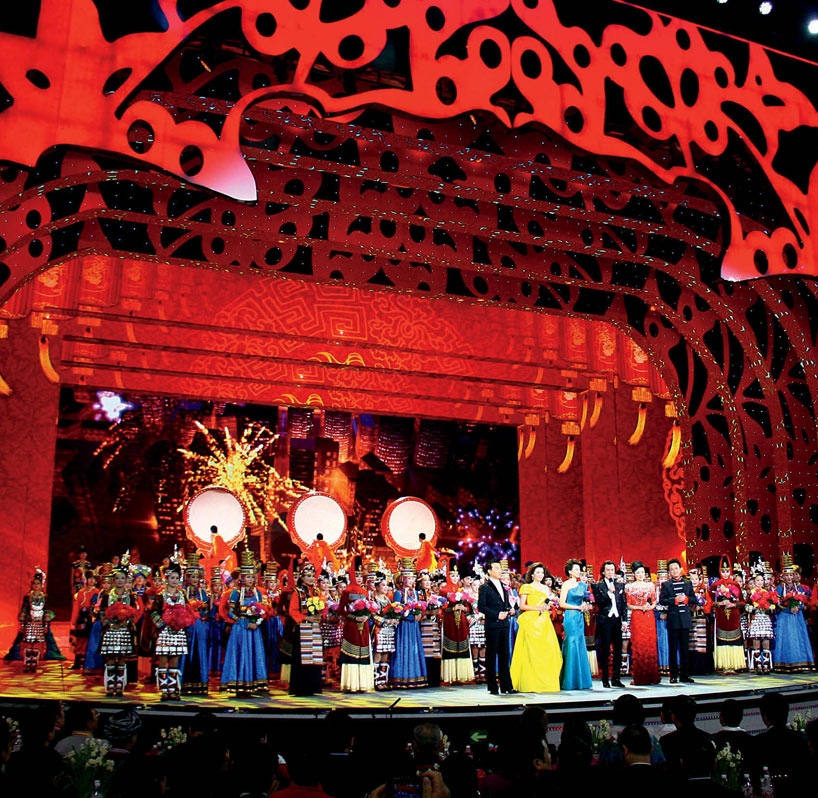
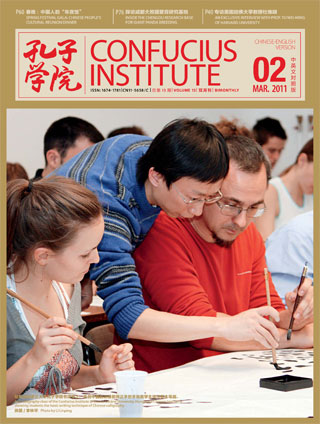
No hay comentarios:
Publicar un comentario